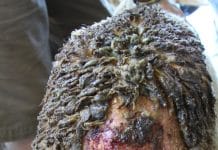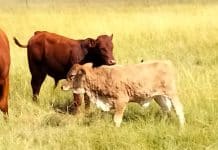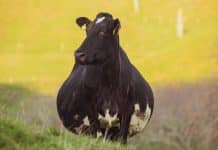Keeping livestock is one of those farming activities that is restricted by two sets of laws. Firstly, there are the unwritten laws of nature, because if grazing as a natural on-farm resource is not managed properly or if animal diseases are not prevented or treated immediately, the result can be devastating.
Secondly, South Africa has first-rate legislation to manage this issue through man-made intervention, but unfortunately ignorance and the limited application of this legislation by both livestock owners and the government departments tasked with enforcing it is often not as desired.
Grazing management and the law
As an environmental resource, the obligation to manage grazing correctly is enshrined in the Constitution of the Republic of South Africa, 1996 (Act 108 of 1996), or the Constitution.
Section 24 of the Constitution defines the right of all South Africans to an environment that is not harmful to their health or wellbeing, and the protection of the environment for present and future generations, through legislation and measures that prevent pollution and ecological degradation, promote conservation and ensure the ecologically sustainable use of natural resources, while promoting justifiable economic and social development.
South Africa’s environmental law is contained in various laws that give effect to the aforementioned provision of the Constitution. These laws are specifically aimed at conserving natural resources such as grazing, the value of which lies in its usefulness as livestock feed.
Overgrazing destroys the natural value of pastures and allows invasive species to take root. Related to this is the extremely detrimental effects of soil erosion. By properly enforcing environmental legislation, land users (not just owners) can be legally compelled to rehabilitate damaged areas before it can be used again.
Applicable legislation
In addition to a positive attitude towards the sustainable management of grazing as a natural resource, livestock producers need to be aware of the following legislation that, together with the Constitution, prescribes how natural resources such as grazing must be used:
- The Conservation of Agricultural Resources Act, 1983 (Act 43 of 1983).
- The Environment Conservation Act, 1989 (Act 73 of 1989).
- The National Environmental Management: Biodiversity Act, 2004 (Act 10 of 2004).
- The National Environmental Management: Protected Areas Act, 2003 (Act 57 of 2003).
- The National Environmental Management Act, 1998 (Act 107 of 1998).
These laws should form part of best farming practices as well as the dedicated promotion of agricultural resources and its crucial role in food security. The legislation can also be used in certain circumstances to prosecute people who do not comply, or to approach the court for court orders to enforce the provisions of the legislation.
Biosecurity is a legal duty
The threat that animal diseases pose to livestock producers or owners not only places a moral duty on them to act responsibly in terms of disease prevention, but it is also considered a legal duty.
This legal duty is based on the preventive measures prescribed in the Animal Diseases Act, 1984 (Act 35 of 1984) or can be imposed in the event of a disease outbreak. If a person fails to take reasonable action to prevent others from suffering damage, the offending party may be held liable for damages.
Under normal circumstances animal diseases are territorial and the standards of responsible conduct in an area will be determined by sound biosecurity and general farming practices, together with the duties imposed by the aforementioned legislation.
Farm dwellers who keep livestock
It is essential to keep in mind that the legislation and legal obligations in question are linked to land use and livestock ownership. Our courts, up to the highest level, have repeatedly found that land users and owners of livestock can also include people who reside on land they do not own.
This means that compliance with the aforementioned legislation and legal duties not only rests on the shoulders of landowners, but also includes a larger target group who has a legal duty to keep livestock in a responsible manner.
Sustainability is key
Farming livestock is an extremely gratifying undertaking and the livestock industry adds great value to the quality of food South Africans enjoy. South Africans therefore have a responsibility to sustainably manage the natural resources that allow livestock producers to do what they do best. – HJ Moolman, Moolman & Pienaar Incorporated
For more information, contact HJ Moolman on 018 297 8799, 018 297 0397 or hj@mmlaw.co.za.






